How can you protect your eyes from aging?
According to recent data from the World Health Organization, 50% of us will need prescription glasses in 2050. The culprit is the amount of time we spend in front of screens and the time we don’t spend outside.
Every day, we focus our eyes on the objects surrounding us. We spend more than 10 hours a day using a telephone and/or a computer, and this number is still going up (four years ago it was only 9 hours a day). The issue is that, in the long run, this eventually leads to us losing the ability to see sharply at a distance.
This is because the eye muscles are forced to constantly focus on things in close range without getting enough time to relax, which can lead to myopia (nearsightedness). On the other hand, the outdoor environment has plenty of objects at various distances. There, our eyes have a natural exercise. So what can you do to protect your eyes from aging?
Older adults need to be aware that eye health concerns can occur quickly and that vision changes. To ensure their well-being, they should schedule a vision test annually and diligently follow their doctor’s advice on treatment plans and overall vision health.
We asked an optometrist and an ophthalmologist how you can protect your eyes from aging and keep sharp vision. Check this out!

1. Protect your eyes from aging by practicing the 20-20-20 rule
When working on a computer, but also when reading, take a 20-second break at an object 20 feet (around 6 meters) away every 20 minutes. This is the perfect distance at which the eye muscles are completely relaxed and don’t need to focus.
You can set an alarm to remind you to do that. Judging a distance of 20 feet can be difficult. However, looking at an object more than 20 feet away is as effective. When in doubt, fix your gaze on an object that is further away rather than closer.
You can also look out a window if there’s one nearby. It may be easier to focus on distant objects.
While there’s little research that has tested the effectiveness of this rule, it has been shown that it works to reduce eye strain and protect your eyes from aging.
2. Change the angle at which you look at the screen
Straighten your spine, close your eyes, and relax them. Stay in this position for a few seconds. Open your eyes, and your vision should naturally drop slightly below. Your screen should be positioned so that you can look at it slightly from above. This is extremely important if you want to protect your eyes from aging and keep them healthy.
If you watch movies lying on the bed, you tense the muscles of your eyes disproportionately. This is also true when you chat with loved ones on the mobile in all unnatural positions, which are actually quite common.
That’s why doctors recommend that those who work on the computer for more than three hours a day buy a PC monitor. Your cervical spine will also thank you.
3. Move away from the screen
The healthy distance from the computer is about 27 inches (70 cm). As we age, the computer screen can put a bigger strain on our eyes, causing eye irritation, headaches, or vision problems like double vision or blurriness.
That’s why, in order to protect your eyes from aging, whenever you can, take a break from work and move away from the screen. And try to avoid working with your laptop on your knees. Not only can this affect your eyes, but also your spine.
Moreover, according to doctors, a laptop on the knees can overheat intimate areas and therefore increase the infertility of men.
It’s also important to wear computer glasses with blue-light protection. Also called blue light-blocking glasses, they help eliminate eye strain, which, in the long run, can help you protect your eyes from aging.
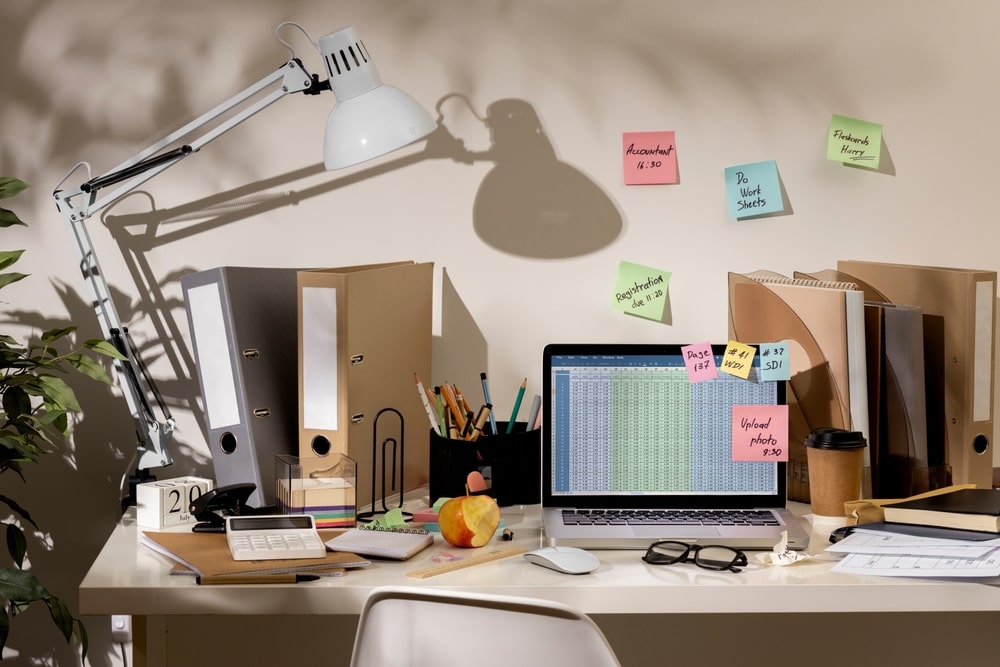
4. Light up the room
When you work on the computer or read in the dark, you put too much pressure on your eyes, which, like every muscle in the body, weakens when overloaded. Give them time to rest and come back to what you were doing before. Your eyes will thank you.
In order to protect your eyes from aging, ensure that your workspace has good lighting. Side effects of computer use and improper lighting include headaches, blurred or double vision, and burning and itchy eyes. When you look at the screen, you blink about 60% less than usual, which causes blurred vision.
Track lighting is ideal because it lets you have a more directional general lighting solution. You can adjust the heads of the fixture so the light beam bounces off non-reflective surfaces or walls to help reduce glare.
Read on to discover other ways to protect your eyes from aging!
5. Adjust the brightness and contrast on the screen
The screen’s brightness should correspond to the ambient light in your workspace. If you’re working in a dimly lit room, turn down the brightness. If you’re sitting in a sunny space and your monitor appears dull or gray, it’s too dark, so you need to pump up the brightness.
Contrast refers to the difference between the brightest white and the darkest black on your screen. Increasing the contrast can help you protect your eyes from aging and reduce the strain on your eye muscles.
A good rule of thumb is to keep your screen’s contrast between 60% and 70%, but keep in mind that only you know what feels best for your eyes.
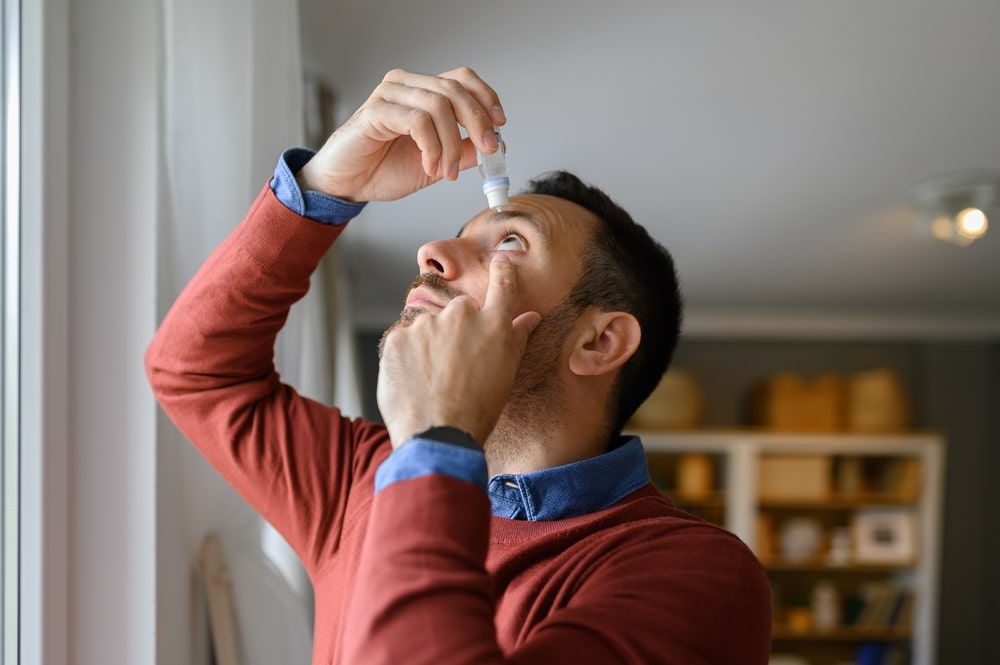
6. Use eye drops
In order to protect your eyes from aging and keep your vision sharp, doctors also recommend using eye drops (also known as artificial tears).
When we look at the screen, we tend to forget to blink, so our eyes get dry. Blinking is more important than you may think. We should blink 15 to 30 times in one minute. When we focus our sight on something, for instance, while reading, we blink only three to five times a minute.
By the way, do you know there are technologies on the Internet that will notify and count your blinks? For more offline people, there are artificial lights just mentioned above. Your optometrist, doctor, or pharmacist will suggest the ideal ones for you (here are some options from Amazon).
7. Put on your glasses instead of your lenses
Lenses are an excellent help in many activities and sports. For many people, they are far more comfortable than glasses. However, experts recommend replacing them with glasses for at least a couple of hours a day.
When wearing lenses, the surface of the eye doesn’t breathe as it should. Moreover, if you wear an inappropriate type of lens, it can cause corneal neovascularization. This happens when the cornea “wants to breathe” and compensates for the lack of oxygen by overgrowing blood vessels. In the worst case scenario, they can interfere with vision.
If you wear lenses all day, remember to switch to glasses. Also, look closely in the mirror to check for red vessels.
If you liked our article on ways you can protect your eyes from aging, you may also want to read 15 Fun Retirement Hobbies to Kick the Golden Years Blues.



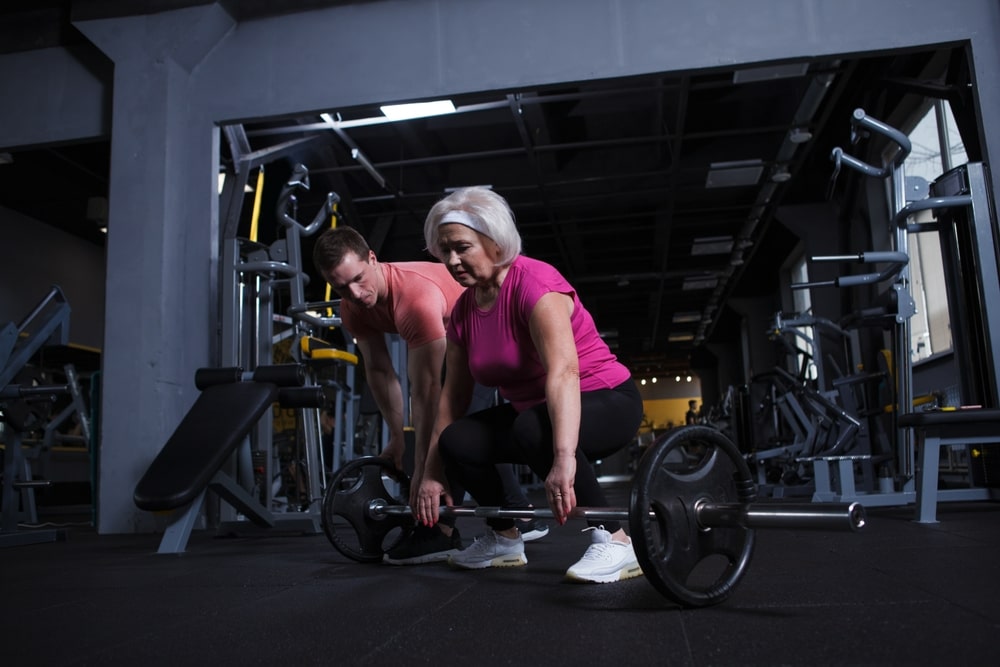




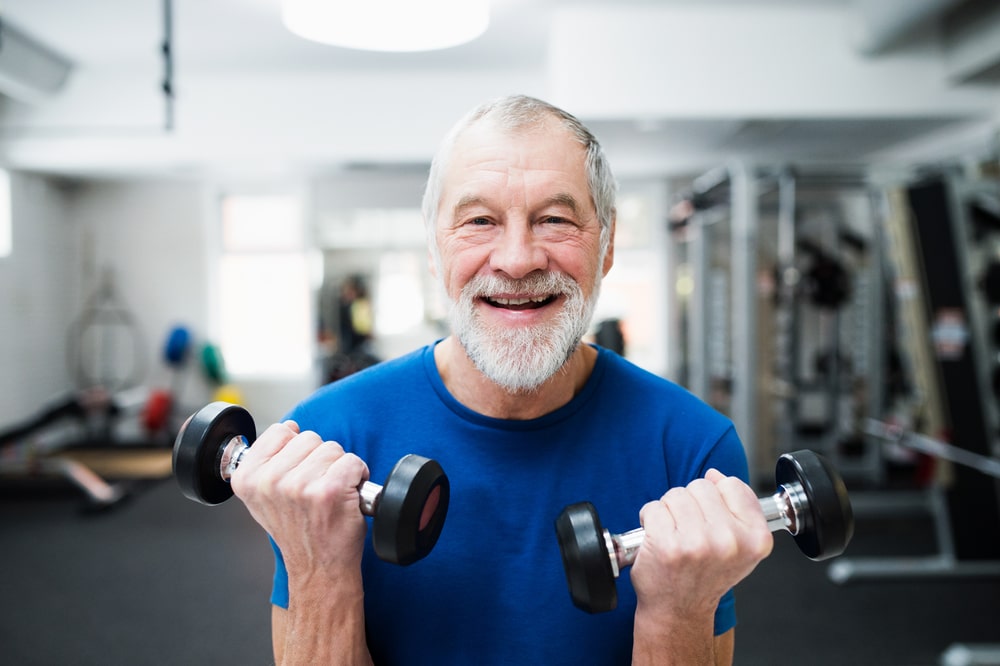
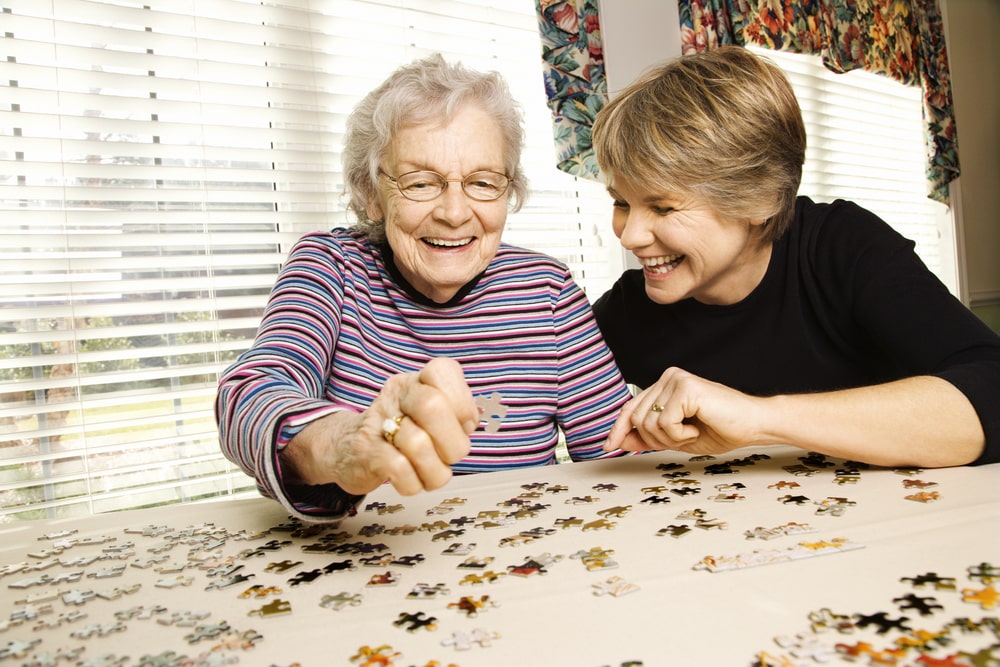
Leave a Reply